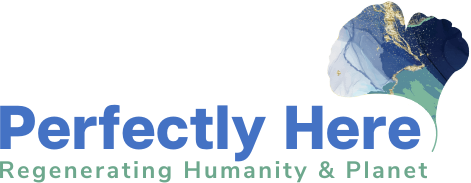Wisdom and Life Intelligence
by Dr. Manijeh Motaghy, Founder and Program Director
Excerpt from her upcoming book: It’s Not Easy to Be Human: Mindfully Optimizing Life
While wisdom may sound like old knowledge, it is not. Wisdom is knowing the truth of something and relying on that truth to guide and shape your values and actions. My teacher, Ajahn Pasanno, explained how wisdom encompasses a cluster of qualities including clearly knowing and being able to apply this clarity in practical ways.
Numerous research studies indicate having more wisdom in later years helps elders enjoy more well-being than having wealth and living in better environments. Lots of it depends on our interests or our parents’ or teachers’ interests. Wisdom can be learned through educational systems, parents, and society, but they are normally understood through personal experience or deep genuine exploration and observation of how things work. Sometimes they come because we’ve experienced a difficulty or challenge in life. It’s often not obvious during our life challenges that we’d be gaining helpful insights. If we’re lucky as we attempt to resolve such painful experiences we become forced to look at situations, our thoughts, or actions differently, to expand our knowledge and personal growth.
One study showed that big life changes in women in their 30s had a positive effect on their development of wisdom. As they faced challenges, and found ways to resolve them without stressing they gained insights. Other studies indicate that while stressful living might have its benefits when negative experiences outweigh the positive ones, too much stress inhibits gaining wisdom. So, it’s not learning at any cost, but gaining a deeper understanding of situations and life that makes a person wiser.
Measurable Components in Wisdom
Psychologist Paul Baltes and others explain wisdom from the perspective of components to be able to scientifically measure. They explain,
Wisdom encompasses cognitive components, such as knowledge and experience, reflective components, or the ability to examine situations and oneself, and prosocial components, meaning benevolence and compassion, and abilities such as perspective-taking, open-mindedness, and intellectual humility.
A wise person dedicated to the truth of life can’t be cruel, egotistic, and driven to achieve their agenda. The wise get it that the universe has its own rules, laws, and processes and they’re fine with it. Baltes points out the five key components involved in wisdom. 1) Having rich knowledge about how something is done. 2) Having rich knowledge of facts. 3) Having an understanding of different life contexts. 4) Having an awareness that the values and priorities are relative to something else and that these values and priorities can change. 5) Having the ability to recognize and manage uncertainty
A Spiritual View
Buddhist teachings have a similar view of wisdom. Wisdom is the ability to understand and penetrate the truths of life and not fight them or cling to them. It’s about knowing cause and effect and having compassion towards all beings. In my teachings, Life Intelligence Lessons, LILs, are synonymous with wisdom. A set of wise lessons about life, paramount for all of us humans to have. These LILs do not belong to a portion of the society, i.e., gurus, philosophers, or scientists. They should be available to all of us from all backgrounds, social groups, and conditions. LILs can be gained by experience, trial and error, scientific exploration, and personal observation. Lessons passed down from past generations can be an insight into the truth of reality as it is.
Through the regular channels of growth and development, we’re not guaranteed to learn everything about how life works, how our emotions form, how our brains work, how relationships work, how to resolve disagreements, other things that impact our sense of happiness, and many other skills and qualities that we need to develop in ourselves. Genetics only determine a portion of our fate; it is the environment that is responsible for shaping us as a human being.

